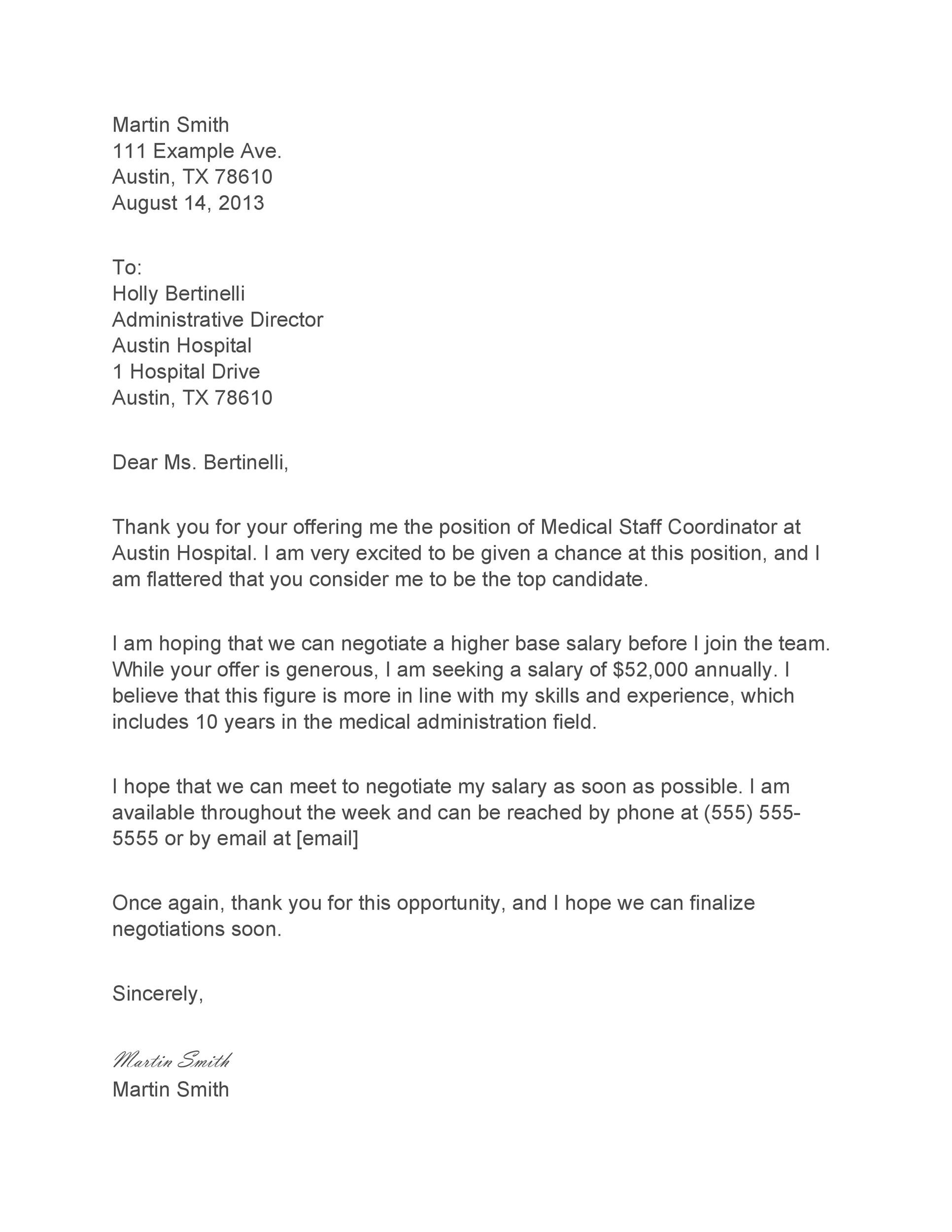Job Offer Negotiation: Strategies For A 'Best And Final' Offer

Table of Contents
Researching Your Worth Before Negotiation
Before even entering a salary negotiation, thorough research is paramount. Knowing your market value is the cornerstone of a successful negotiation. This isn’t about being greedy; it’s about ensuring fair compensation for your skills and experience.
Understanding Market Value
Determining your appropriate compensation involves several steps:
- Leverage Salary Survey Websites: Utilize reputable websites like Glassdoor, Salary.com, Payscale, and Levels.fyi to research salaries for similar roles in your location and industry. Refine your search by specifying your experience level, skills, and company size.
- Network Strategically: Connect with professionals in your field via LinkedIn or professional networking events. Inquire about their compensation (without being intrusive!), gaining valuable insights into typical salary ranges.
- Analyze Job Descriptions: Carefully review job descriptions for similar roles. Note the required skills and responsibilities, comparing them to your own experience to justify your salary expectations.
Quantifying Your Contributions
Beyond your skills, highlight your achievements. Quantifiable results dramatically strengthen your negotiation position. Prepare a compelling "achievements document" showcasing your past successes:
- Focus on Impact: Instead of simply listing tasks, emphasize the impact of your work. For example, instead of "Managed social media accounts," say "Increased social media engagement by 30% resulting in a 15% increase in leads."
- Use Metrics: Back up your claims with data. Use concrete numbers to illustrate your accomplishments, such as "Reduced customer service response time by 15%," or "Increased sales revenue by 10% in Q4."
- Tailor to the Role: Adjust your achievements document to specifically highlight the skills and experiences relevant to the new job offer.
Preparing for the Negotiation Conversation
Thorough preparation significantly increases your chances of success. This involves defining your goals and practicing your negotiation approach.
Defining Your Ideal Offer
Before the conversation, clearly define your ideal compensation package. This goes beyond salary:
- Salary Range: Determine a realistic salary range, factoring in your research and desired income. Having a range allows for flexibility during the negotiation.
- Benefits: List your desired benefits, including health insurance coverage (premium contribution percentage), retirement plan matching, paid time off (vacation, sick leave), and any other perks (professional development stipend, flexible work arrangements).
- Non-Negotiables: Identify aspects of the offer that are absolute must-haves. This helps you set boundaries during the negotiation process.
Practicing Your Pitch
Practicing your negotiation strategy builds confidence and smooths the delivery.
- Role-Playing: Rehearse the conversation with a trusted friend, mentor, or career counselor. They can provide feedback on your approach and help you anticipate potential objections.
- Anticipate Questions: Prepare answers to common questions about your salary expectations and reasons for your requests. Focus on value-added contributions and aligning your requests with company objectives.
Strategies for a Successful Negotiation
The actual negotiation requires confidence, clear communication, and strategic thinking.
Opening with Confidence
State your desired salary range confidently but professionally. Avoid underselling yourself:
- Clear and Concise: Present your desired salary range directly and clearly, explaining your reasoning based on your research and experience.
- Positive Framing: Focus on the value you will bring to the company, not solely on your financial needs. This emphasizes the mutual benefit of the employment relationship.
Addressing Counter-Offers
Counter-offers are expected. Respond strategically, focusing on the value you bring and seeking clarification:
- Active Listening: Listen carefully to the counter-offer and ask clarifying questions to understand the rationale behind it.
- Data-Driven Responses: If the counter-offer is lower than expected, calmly reiterate your value proposition using specific data from your accomplishments document to justify your requested compensation.
Knowing When to Walk Away
Sometimes, accepting a less-than-ideal offer is not the best choice. Know your limits:
- Self-Respect: Walking away demonstrates self-respect and confidence in your abilities.
- Long-Term Career: Consider the long-term implications of accepting an offer that doesn't meet your minimum requirements.
Securing the 'Best and Final' Offer
The final steps involve summarizing your key requests and obtaining the offer in writing.
Summarizing Key Points
Before concluding, concisely summarize your key requests:
- Reiterate Value: Briefly reiterate your key accomplishments and how they align with the company’s needs.
- Confirm Agreement: Ensure all parties are on the same page regarding salary, benefits, and other agreed-upon terms.
Getting the Offer in Writing
Always obtain a formal written offer detailing all agreed-upon terms:
- Review Thoroughly: Carefully review the written offer to ensure it accurately reflects your negotiation and contains no hidden clauses.
- Seek Clarification: Don't hesitate to seek clarification on anything unclear before accepting the offer.
Conclusion
Mastering job offer negotiation is a critical skill for career advancement. By researching your worth, preparing thoroughly, and employing effective negotiation strategies, you can significantly increase your chances of securing a "best and final" offer that reflects your skills and experience. Remember to quantify your achievements, practice your pitch, and know when to walk away. Use these strategies to confidently approach your next job offer negotiation and secure the compensation and benefits you deserve. Share this article with your network to help others master the art of successful job offer negotiation strategies!

Featured Posts
-
 Malayalam Movie News Debunking The Suraj Venjaramoodu Kieran Culkin Oscar Speech Rumor
May 23, 2025
Malayalam Movie News Debunking The Suraj Venjaramoodu Kieran Culkin Oscar Speech Rumor
May 23, 2025 -
 Englands Xi Revealed One Off Test Against Zimbabwe
May 23, 2025
Englands Xi Revealed One Off Test Against Zimbabwe
May 23, 2025 -
 Latest Sheinelle Jones News Health Update And Today Show Return Speculation
May 23, 2025
Latest Sheinelle Jones News Health Update And Today Show Return Speculation
May 23, 2025 -
 Zak Starkey Rehired The Whos Drummer Confirmed By Pete Townshend
May 23, 2025
Zak Starkey Rehired The Whos Drummer Confirmed By Pete Townshend
May 23, 2025 -
 The Future Of Family Planning Over The Counter Birth Control And Its Implications
May 23, 2025
The Future Of Family Planning Over The Counter Birth Control And Its Implications
May 23, 2025
Latest Posts
-
 The Jonas Brothers Joe Jonas And A Hilarious Marital Dispute
May 23, 2025
The Jonas Brothers Joe Jonas And A Hilarious Marital Dispute
May 23, 2025 -
 Joe Jonas Handling A Unique Fan Interaction
May 23, 2025
Joe Jonas Handling A Unique Fan Interaction
May 23, 2025 -
 How Joe Jonas Responded To A Couple Fighting Over Him
May 23, 2025
How Joe Jonas Responded To A Couple Fighting Over Him
May 23, 2025 -
 Joe Jonas Responds To Married Couples Public Dispute
May 23, 2025
Joe Jonas Responds To Married Couples Public Dispute
May 23, 2025 -
 Couple Fights Over Joe Jonas His Hilarious Reaction
May 23, 2025
Couple Fights Over Joe Jonas His Hilarious Reaction
May 23, 2025
